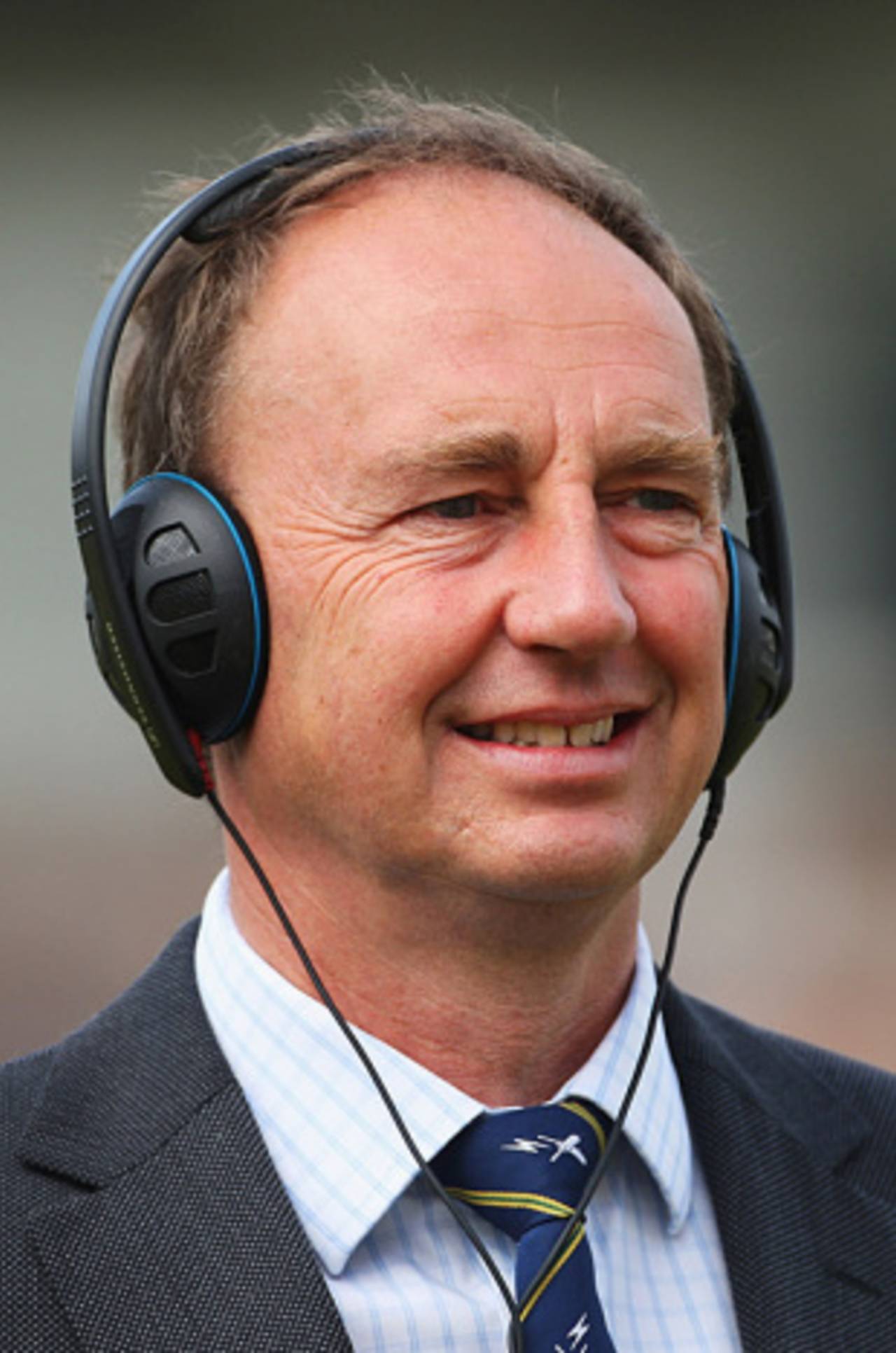An odd couple?
An established cricket magazine and start-up, online commentary set-up have joined forces. Can it work?
George Dobell
Feb 21, 2012, 7:28 PM

Jonathan Agnew has been left in a difficult position • Getty Images
At first glance, the sale of Test Match Sofa to the Cricketer seems improbable. The Sofa is an irreverent on-line, audio service operating, some say, on the margins of the law, while the Cricketer is one of the most traditional brands in cricket, still offering a monthly magazine in a world that now requires immediate information.
Actually, the mutual attraction is obvious. The Cricketer, under new editorship, is keen to reach out to a younger audience. The Cricketer retains a subscriber list of around 30,000, but the readership is generally mature, male and white.
Test Match Sofa's need was to secure funding to secure its future. It is understood the deal will cost the Cricketer in excess of £100,000 (USD 158,000) and will include podcasts and written articles as well as ball-by-ball commentary of all England internationals.
Test Match Sofa's acquisition is somewhat controversial. There are those who believe that the service they provide - audio commentary - flouts the exclusive broadcasting rights deals owned by the likes of Sky and the BBC. The Sofa's team commentate from a location in London where they watch the games unfold on television. It is a tactic that has, in the past, also been utilised by talkSPORT and bypasses the requirement to pay for any rights.
This offers a dilemma for the BBC and ECB in particular. While some at ECB cautiously welcome Test Match Sofa, concluding that its informality might encourage a new audience to follow a game, others are concerned that their service undermines the worth of the broadcasting deals that help finance the game at all levels in England and Wales. What would happen, officials at the BBC say, if they also refused to pay for broadcasting rights, but remained in the UK and commentated from television? The simple answer is that the finances of the game would suffer.
To add salt to the wound, in accordance with the BBC's deal with the ECB, listeners outside the UK are unable to access the BBC's Test Match Special commentary service. Test Match Sofa, however, is available free to anyone with an internet connection and has been funded by donations, advertising and membership, which buys access to exclusive content. The Sofa lures in alongside its regulars a collection of comedians, current and former players and other figures in some way related to cricket to offer a ball-by-ball commentary service. In the interests of transparency, it is worth adding at this point that I have appeared as a guest on several occasions.
The Sofa will never offer the mass market appeal of Test Match Special. Some will be turned off by the swear words; some will be turned off by the irreverent approach; some will simply prefer the more polished formality of the BBC.
But some people love it, valuing the balance between humour and information and its laid-back style in which it is presented. They love the accessibility of the presenters - listeners are encouraged to engage with the commentary team and emails and tweets are read out regularly. It is like watching the game in the pub with a group of knowledgeable friends. Besides, it is perfectly possible to enjoy both Test Match Sofa and Test Match Special. The latter remains, despite all the changes to the game and the world in which it is played, one of the gems of the BBC.
Leaving issues of taste to one side, there are those who claim that The Sofa must be crushed in order to preserve the worth of the broadcasting rights deals. Giles Clarke recently suggested that "pirate websites" offer "the greatest danger facing the game". It is unclear whether he counts The Sofa as such a pirate.
As things stand, it appears The Sofa's operation is within the law. Several parties have, it is understood, taken legal advice and the consensus is that, so long as The Sofa does not claim to be doing anything other commentating from a remote location, they are breaking no law.
It may well be that the ECB and BBC push for legislation to be tightened to outlaw such services as those provided by Test Mach Sofa. Even if the government did not have rather more pressing matters than subduing the aspirations of an amiable bunch of cricket lovers, the ECB may find that the Cricketer is not without influence in high places.
It may be relevant that one of the directors of the Cricketer is Lord Marland. Marland stood against Clarke for the chairmanship of the ECB in 2009 and, as a consequence, there is little love lost between the pair. Neil Davidson, the former chief executive of Leicestershire, is also a director of the Cricketer and has an equally frosty relationship with Clarke. Marland, in particular, is a not insubstantial foe. He is a former treasurer of the Conservative Party and current Parliamentary Under Secretary of State for the Department of Energy and Climate Change.
There is an intriguing sub-plot here. Jonathan Agnew, the BBC's cricket correspondent, is also an investor in the Cricketer. As a passionate defender of the BBC, he is concerned by the Cricketer's decision to embrace a rival and a rival he does not care for. It has placed Agnew in a tricky position. It is very hard to see how his relationship with the Cricketer can survive. Christopher Martin-Jenkins and Vic Marks - also key contributors to Test Match Special and The Cricketer - may be wrestling with a similar conflict about the development.
George Dobell is a senior correspondent at ESPNcricinfo